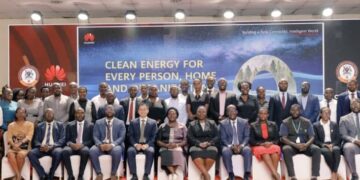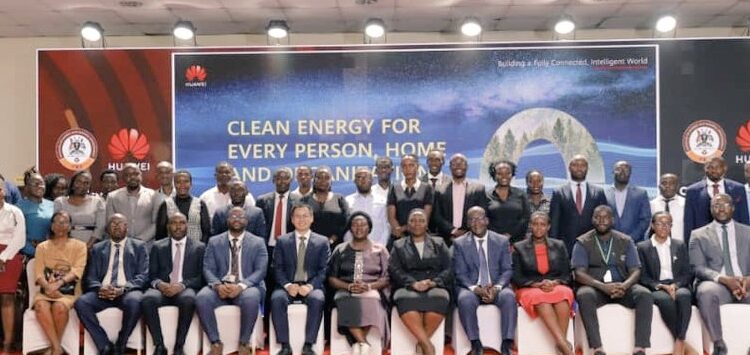The Permanent Secretary of the Ministry of Energy and Minerals Development, Eng. Irene Bateebe, has announced that the government is on track to achieving clean and green energy solutions.
Speaking at the Green Sustainable Energy Industry and Stable National Conference, organized by Huawei Uganda and the Ministry of Energy, Bateebe emphasized the importance of transitioning to green energy for Uganda’s development.
She noted that investing in renewable energy can help create a more resilient and sustainable energy system. Green energy, which is derived from renewable sources such as solar and wind, is environmentally friendly and reduces carbon emissions.
Bateebe highlighted that solar energy, in particular, offers immense potential for Uganda due to its high solar irradiance throughout the year. This resource presents a significant opportunity for both on-grid and off-grid applications.
“The integration of cutting-edge technologies, such as Huawei’s optimizer + PV + ESS + charger + load + cloud one-stop solution, can enhance the efficiency and reliability of solar power systems. By adopting these innovations, we can ensure a stable power grid even with a high penetration of renewables,” she stated.
She stressed that a stable national grid is the backbone of a robust energy system. To achieve this, the country must focus on modernizing infrastructure and promoting energy storage, among other initiatives.
Bateebe revealed the government’s commitment to maintaining a clean energy mix, aligning with international environmental protocols and addressing sustainability and climate change.
“As a ministry, we aim to ensure a just energy transition for the people of Uganda, providing clean, affordable, and reliable energy,” she noted.
Currently, 57% of Ugandans have access to electricity, with an expected update from the Uganda Bureau of Statistics increasing this figure to about 59%. The government aims for universal access by 2030, necessitating investments in generation, transmission, distribution, and last-mile connectivity.
Bateebe affirmed the government’s dedication to enhancing access to clean energy through digital solutions. She highlighted ongoing efforts, such as extending solar systems to remote areas and collaborating with the private sector to apply digital solutions to decentralized energy systems.
“These systems, which are off the grid, require substantial battery storage. We aim to improve grid reliability by deploying power technologies like energy storage systems from Huawei. These technologies are portable, easy to deploy, and quick to reach remote areas. We anticipate an increase in such technologies in both on-grid and off-grid networks,” she explained.
Bateebe also addressed the issue of vandalism, noting that while it has decreased on transmission lines, it has increased on the distribution network. This necessitates the deployment of digital technology for timely alerts in case of potential tampering.
“Aside from the solar system, we will be discussing further with Huawei to ensure better protection of our systems and network,” she added.
Nick Lusson, Vice President of Huawei Digital Power Eastern Africa Region, emphasized the importance of investing in green energy and batteries over diesel generators, which are costly.
“Diesel is one of the most expensive forms of energy. By investing in green energy, you can say goodbye to blackouts. We have manufactured quality systems that can be accessed at an affordable cost,” Lusson said.









